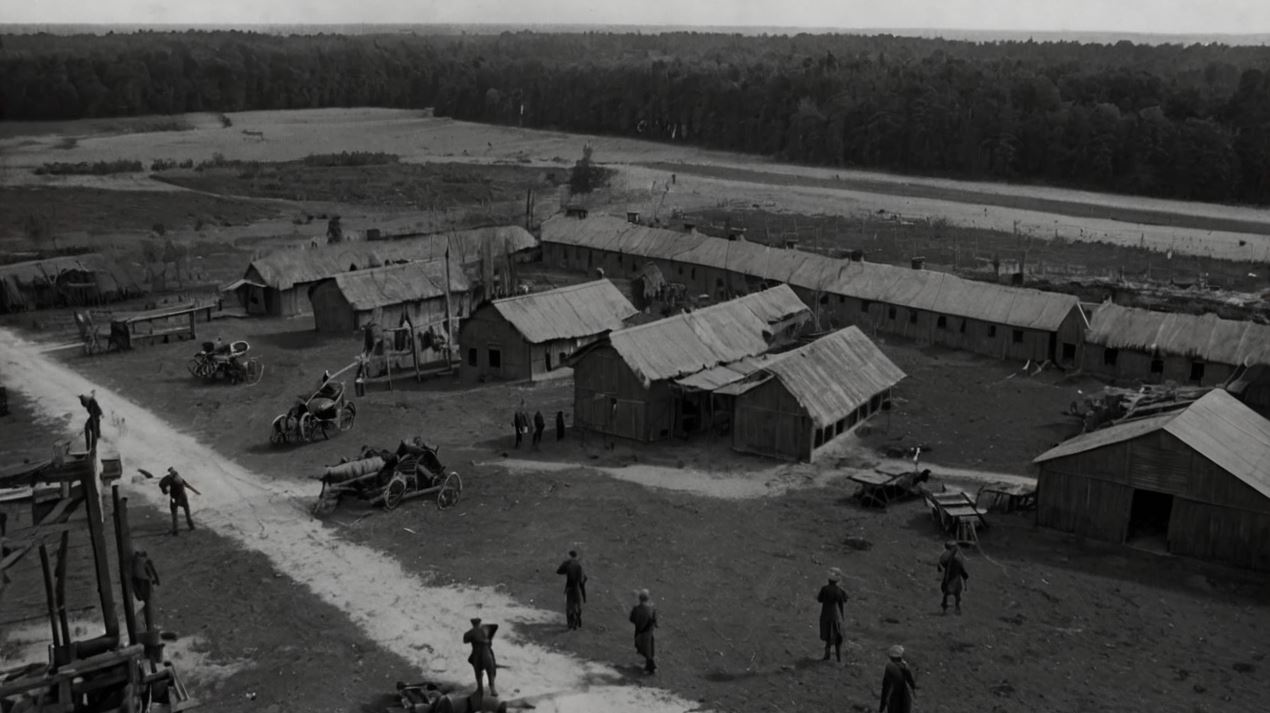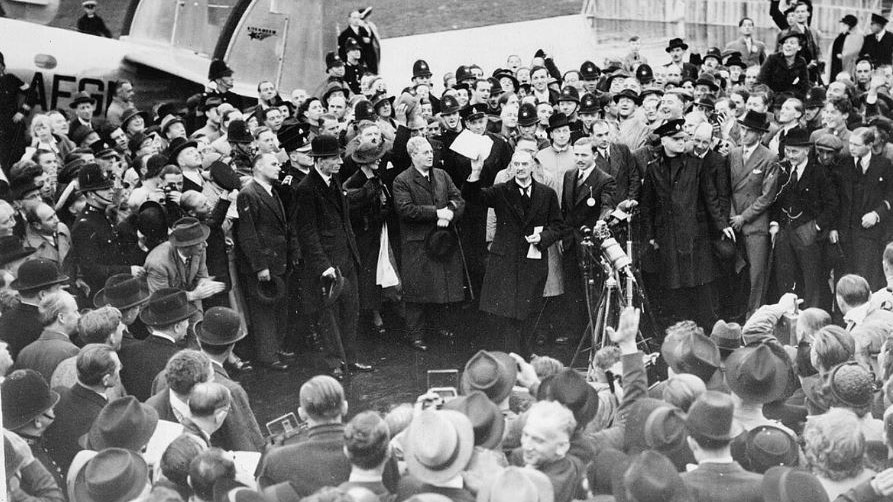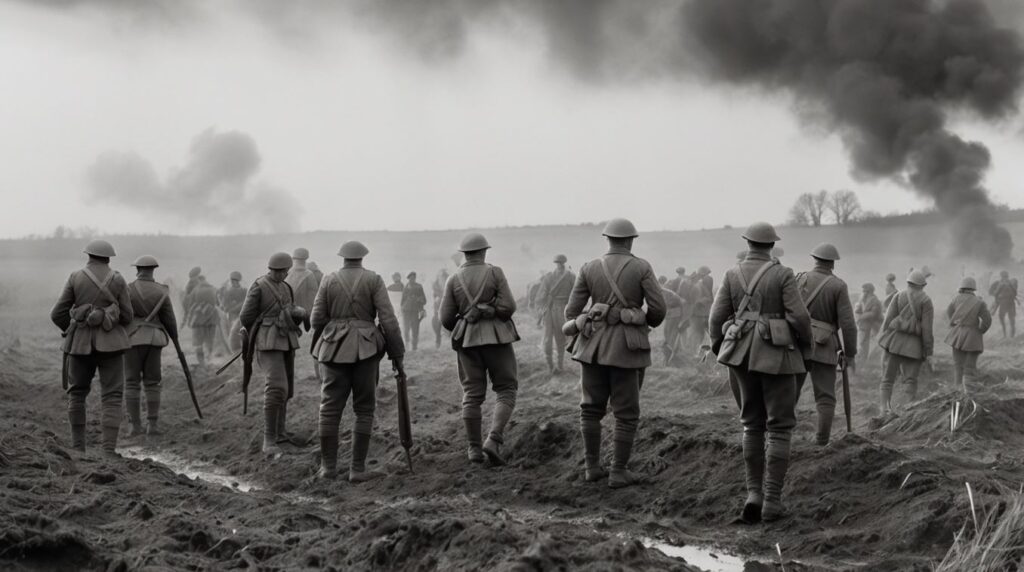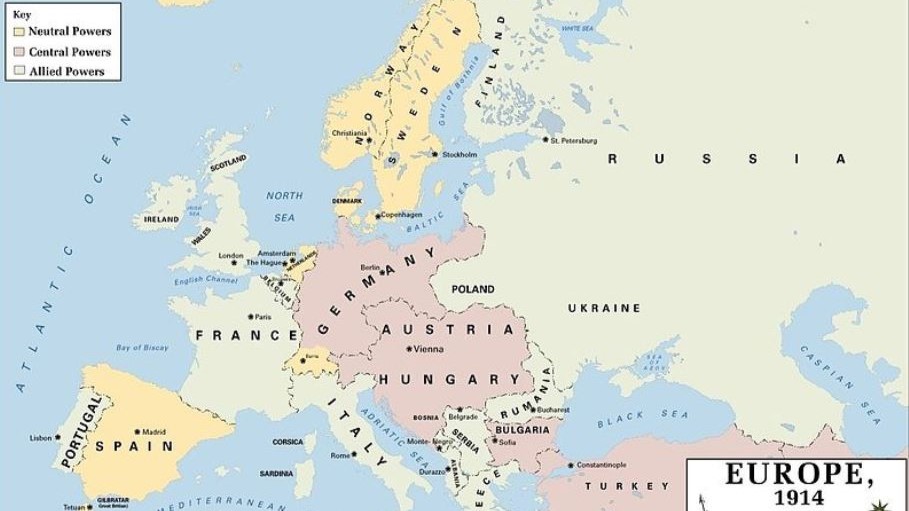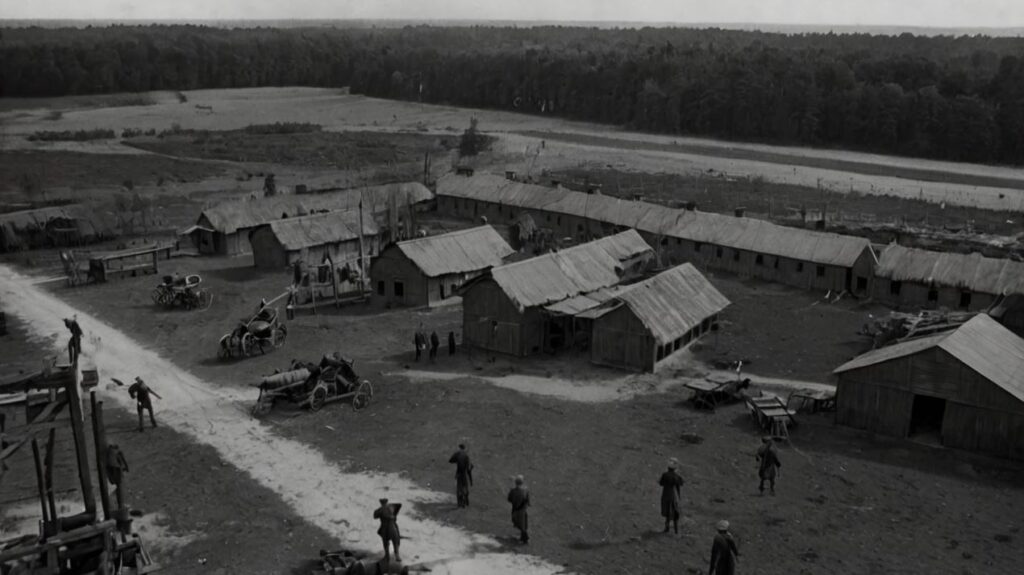In 1917, the French army faced a massive internal crisis. The soldiers were demoralized by the failed Nivelle Offensive. In response they mutinied en masse. This French mutiny threatened the stability of the Western Front.
But, what if Germany had discovered and exploited this French mutiny? This article explores how Germany could have taken advantage and the potential impact on the Western Front.
- 1. Background: The French Mutiny of 1917
- 2. The German Perspective: State of the German Army in 1917
- 3. Potential German Strategies to Exploit the French Mutiny
- 4. The Impact of a German Exploitation of the French Mutiny
- 5. Final Thoughts on the French Mutiny and Germany's Missed Opportunity
- Further Reading
1. Background: The French Mutiny of 1917
The Nivelle Offensive and Its Failure
The French army entered 1917 with high hopes for a swift victory. This was fueled by the successes at Verdun.
General Robert Nivelle promised a decisive breakthrough that would end the war. The plan involved a massive artillery barrage followed by an infantry assault aimed at breaking through the German lines at the Chemin des Dames ridge.
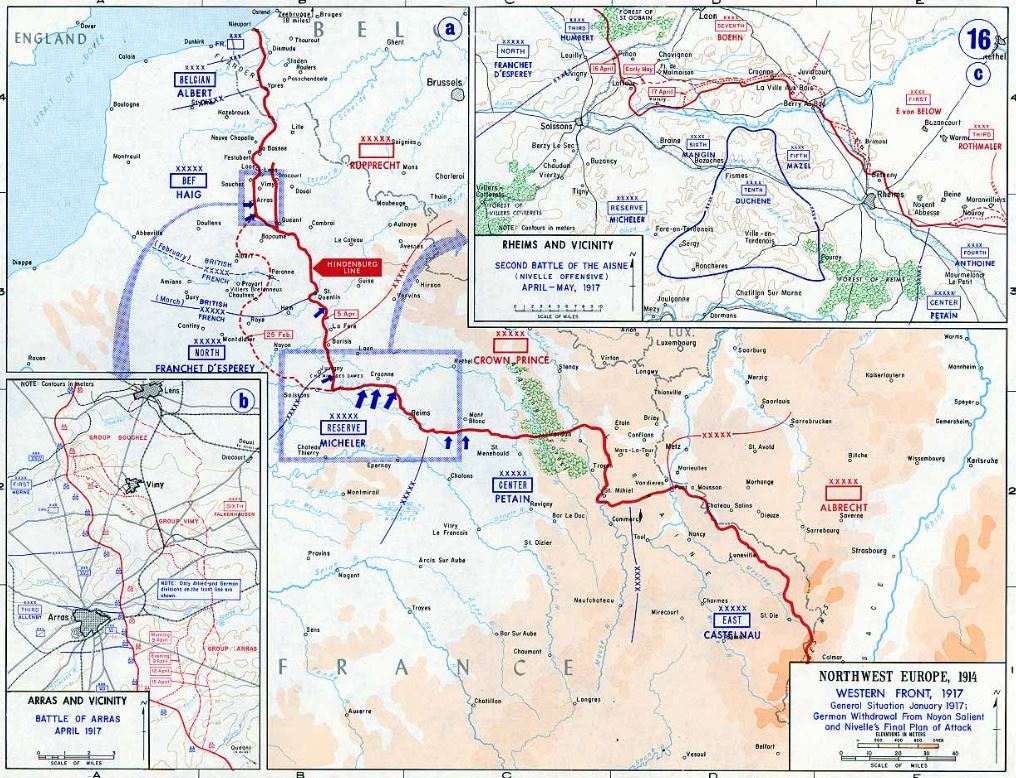
The offensive was launched on April 16, 1917, but it was a disaster.
The Germans, anticipating the attack, withdrew to fortified positions, rendering the French bombardment ineffective.
French troops faced intense machine gun fire and well-prepared defenses. Casualties mounted quickly, with little to show for the effort.
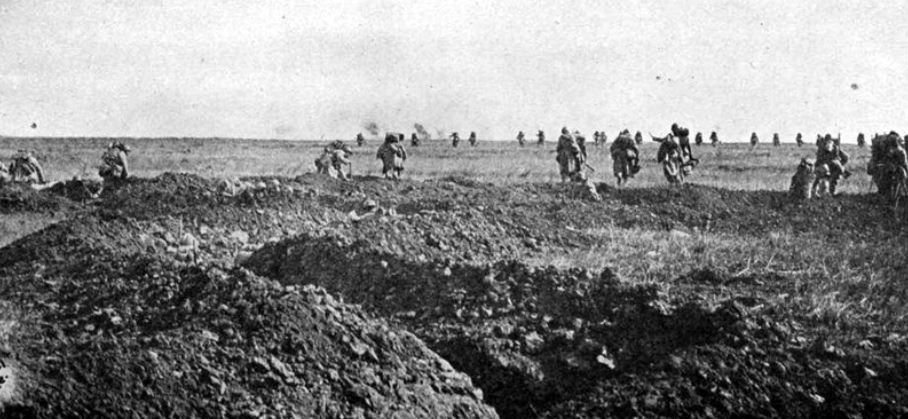
By early May, it was clear that the offensive had failed. This led to widespread disillusionment and anger among the French soldiers.
Scale and Causes of the French Mutiny
The failure of the Nivelle Offensive triggered mutinies across the French army. Over 50 divisions were affected.
Soldiers refused to follow orders, leaving their posts, and even marching toward Paris in protest.
The soldiers were exhausted from years of trench warfare. Demoralized by continuous defeats. And angered by the perceived incompetence of their leaders.
They demanded:
- Better living conditions
- More regular and longer leaves, and
- An end to futile offensives.
The mutinies were not driven by a desire for revolution but by a desperate need for improved conditions and a re-evaluation of military strategy.
2. The German Perspective: State of the German Army in 1917
Challenges Faced by the German Army
The German army, like its French counterpart, was exhausted from years of continuous fighting.
The German army had also suffered heavy casualties and was struggling to maintain its own lines. After the intense fighting of 1916 and early 1917, the German High Command was cautious about launching a major offensive without adequate reserves.
The Battle of Verdun and the Somme had taken a heavy toll. And the German High Command was wary of overextending its forces.
Despite these challenges, the German army had managed to hold its ground. In some cases they achieved strategic withdrawals to more defensible positions.
German Intelligence on French Mutiny
German intelligence services had some knowledge of the French mutinies. Reports of unrest and refusals to fight had reached German commanders.
However, this information was not fully exploited.
The Germans were cautious. They feared that exploiting the French mutinies might inspire similar unrest within their ranks, especially given the revolutionary sentiments brewing in Russia and spreading across Europe.
The Germans also underestimated the scale and significance of the French mutinies. While they were aware of some unrest, they did not fully grasp the extent of the crisis within the French army. This miscalculation led to a missed opportunity to exploit a critical weakness in the Allied defenses.
3. Potential German Strategies to Exploit the French Mutiny
Strategic Offensive
One of the most direct ways Germany could have exploited the French mutinies would have been to launch a surprise offensive.
The French army was demoralized and fractured. As such, they would have struggled to mount an effective defense.
A well-timed German attack could have broken through the French lines. This might have led to significant territorial gains and potentially even forcing the French government to consider peace negotiations.
Psychological Warfare
Germany could have intensified its psychological warfare efforts.
Propaganda leaflets, radio broadcasts, and other means of communication could have been used to further demoralize French troops.
Messages highlighting the futility of their situation, the incompetence of their leaders, and the hardships of continued fighting could have deepened the sense of despair and unrest within the French ranks.
Increased espionage and sabotage efforts could have further disrupted French command and communication.
German agents could have:
- Spread misinformation
- Destroyed supply lines, and
- Created additional chaos behind French lines.
These actions would have amplified the disarray caused by the mutinies, making it even harder for the French army to regroup and respond effectively.
Political Maneuvering
Perhaps more unlikely, but diplomatically, Germany could have leveraged the French mutinies to push for peace negotiations.
By highlighting the instability and lack of morale within the French army, Germany could have argued that continued fighting was pointless. They could have then pushed for terms favorable to the Central Powers. This approach would have required careful negotiation and the presentation of Germany as a willing partner for peace.
4. The Impact of a German Exploitation of the French Mutiny
Immediate Military Consequences
If Germany had successfully exploited the French mutinies, the immediate military consequences could have been profound.
A breakthrough on the Western Front would have put the Allies on the defensive and potentially allowed Germany to capture critical territory. The disruption of French defenses could have led to a rapid German advance, threatening key cities and infrastructure.
Effect on French Morale
Further demoralization of French troops would have been inevitable.
The realization that their internal strife had been used against them by the enemy could have led to even deeper disillusionment and a collapse of fighting spirit.
This could have resulted in more widespread mutinies. Leading to a complete breakdown of the French military structure.
Impact on Allied Coordination
Franco-British relations were already strained by the end of 1916. The French mutinies exacerbated these tensions, with British commanders growing increasingly frustrated with their French counterparts.
The British were already strained by the heavy casualties and resource demands of the war. They would have been forced to bear an even greater burden. The British might have had to divert more troops and resources to the Western Front. This would have weakened their efforts in other theaters.
This strain could have led to increased tensions within the Allied command and potentially forced the British to reconsider their commitment to the war.
A German exploitation of the mutinies could have driven a deeper wedge between the Allies. This would have weakened their coordination and effectiveness. This division could have given Germany a strategic advantage in subsequent battles.
Broader War Dynamics
A major German success on the Western Front could have altered the broader dynamics of World War I.
It might have delayed or altered American involvement. The U.S. at this time was just beginning to mobilize its forces.
A weakened French army and strained Allied relations could have prolonged the war. It may have even forced the Allies to negotiate from a position of weakness, potentially leading to a more favorable outcome for Germany.
5. Final Thoughts on the French Mutiny and Germany’s Missed Opportunity
The 1917 French mutinies presented a significant but missed opportunity for Germany.
Had they exploited this internal crisis, the impact on the Western Front and the broader war could have been profound. Understanding this hypothetical scenario sheds light on the delicate balance of wartime strategies and the importance of timely action.
By examining how Germany could have exploited the French mutinies of 1917, we gain insights into missed opportunities and potential impacts on the Western Front during World War I.
Further Reading
I hope you have found this blog post about How Could Germany Have Exploited the 1917 French Mutiny? interesting. To find out more about World War 1, read here:
- The Haunting Russian Zombie Legends of World War I
- White Friday: A WW1 Tragedy on the Italian Front
- Militarism, Alliances, Imperialism, Nationalism: The MAIN causes of WWI
- Germany’s World War 1 Turnip Winter
- Did Any Civil War Veterans Serve in World War 1?
You may also enjoy these articles exploring ‘What If’ scenarios:

